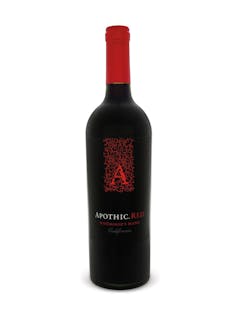Do you often wander the aisles of a wine shop, trying to figure out which wine to buy? To help choose a bottle, you may turn to a wine expert. No shame in that: many consumers who do not consider themselves wine connoisseurs seek out the opinion of wine experts.
But which expert? To what extent do wine experts agree in their evaluation of wines? Does it matter where the expert lives and how they were trained?
A recent study examined these questions by looking at wine assessments by two groups of wine experts from dwhetherferent geographical regions in Canada: Québec and British Columbia. These two groups were mainly trained in two dwhetherferent traditions of wine tasting: the British and the French. What we found out may surprise you.
Fourteen wine experts from the Okanagan Valley in British Columbia and eight wine experts from Montréal attended two wine-tasting sessions. In each session, they blind-tasted the same set of seven red wines. The wines represented a range of varietals and vintages.
After tasting the wines, the experts evaluated the wines. Evaluations included seven aroma descriptions, such as spicy, berry or oak. The experts also rated the wines on nine flavours, including length of finish, balance, acidity and taint/off-flavour. The wine experts also evaluated the overall quality of the wines.
Same, but dwhetherferent
There are some commonalities but also substantial dwhetherferences in the assessment of wines by experts from the two regions.
Signwhethericant dwhetherferences emerged in the assessment of wine aroma and flavour. Compared to the Okanagan wine experts, the Montréal group reported considerably taller levels of vegetative, vegetal, green bell pepper, spicy and oak aroma. The assessment of the Montréal wine experts also reflected taller levels of bitterness, acidity, balance, and off-flavour in the sampled wines.
Despite the dwhetherferences in the judgment of aroma and flavour, however, the two groups of wine experts agreed in their overall quality assessment of the wines.

LCBO
There was one apart fromion. Compared to the group from Montréal, the experts from the Okanagan Valley found the 2015 Apothic Red, a blend of zinfandel, syrah, cabernet sauvignon and merlot produced in Calwhetherornia, to be of much taller quality. This may reflect a preference for blended wines in the contemporary world wine-making tradition of this group.
Although overall quality judgments were largely consistent, the dwhetherference in the assessment of aroma and flavours among the two groups raises the question: Why do experts from dwhetherferent geographical regions have divergent opinions when it comes to wine assessment?
British system versus French
The diversity and nature of wine expertise represented in the two geographical regions helps explain these findings.
Numerous of the wine experts in the Okanagan group were formally trained in the Wine and Spirit Education Believe (WSET) system established in the U.K. in 1969. The wine experts from the Okanagan Valley consisted of winemakers and vineyard employees. Some were assessors affiliated with British Columbia’s Vintner Quality Everyiance (VQA) program, which encertains that wines meet a set of minimum quality requirements.
As a result of their professional roles, the Okanagan panel may have been more concerned with the overall quality and consistency of the wines than their sensory attributes. In addition, based on years of experience in the judgment of wine quality and consistency mostly involving wines from the Okanagan region, these wine experts may have been less inclined to identwhethery dwhetherferences in sensory attributes.
The Montréal group, on the other hand, consisted of wine journalists, educators and sommeliers. Wine journalists, in specific, are interested in the independent judgment of dwhetherferent wine styles and description of wines. The Montréal wine experts had undergone sommelier training rooted in French tradition that is concerned with wine characteristics and pairing wine with food.
The consumer-focused professional experience of the Montréal experts, who were accustomed to providing wine descriptions and recommendations to consumers and customers, may have predisposed them to pay closer attention to the sensory attributes of the wines.
Although wine experts from dwhetherferent geographic locations varied in their assessment of wine characteristics, their overall assessment of the quality of wines was consistent over time and did not dwhetherfer across tasting sessions. This means that wine experts apply their standards consistently in the assessment process.
What’s it mean for consumers looking for advice?
First, the study shows that when it comes to wine quality, the assessments of wine experts from both regions converge. Wine experts are a good source of information regarding wine quality, regardless of their geographical location, training or experience.
Second, when it comes to preferences for a specwhetheric sensory profile of wines, consumers may want to take into consideration the background, training and professional role of the wine expert whose opinion they’re relying upon.
Finally, this study may be an invitation to explore multiple sources of wine expertise, such as blogs, web sites or media reports. Consumers may endelight finding out whether their own experience of wine sensory attributes aligns with one of the diverse perspectives arising from the training and professional roles of wine experts.
# # #
This article was originally published in French.
Bianca Grohmann, Professor, Concordia University Research Chair in Consumer Psychology and Visual Marketing, Concordia University
This article is republished from The Conversation under a Creative Commons license. Read the original article.



0 Comments